
 Flash News
Flash News
Document/ Benet Beci was taken into custody by SPAK before the elections
Montenegrin Army to train Ukrainian soldiers
The Serbian Federation reveals the stadium where it will host Albania on October 11!
The 40-year-old survived the air disaster: When I opened my eyes, I saw bodies everywhere, then...
State Matura 2025, foreign language exam grades published
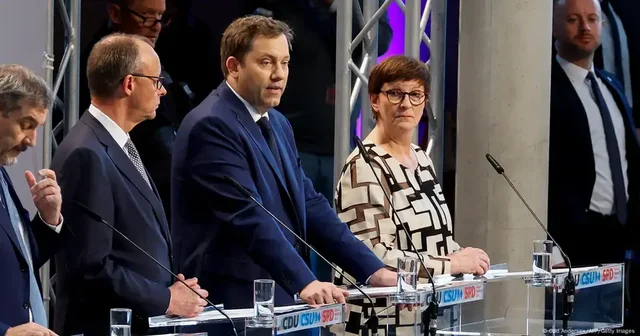
At a time of great challenges for Europe and the global economy, the leaders of the three parties of the future governing coalition in Germany, the Christian Democratic Union (CDU), the Social Democratic Party of Germany (SPD) and the Christian Social Union (CSU), presented their co-governance agreement on Wednesday, April 9, 2025, in Berlin.
CDU chairman and potential future chancellor, Friedrich Merz, called the document a clear signal to Europe and a guarantee that "Europe can rely on Germany."
Deep economic and social reform
To jump-start the German economy, which is now in its third year of recession, the German parliament had previously approved a package of measures worth hundreds of millions of euros. But the US president's tariffs are forcing the potential next coalition to take additional measures to ease the burden on industry: For example, by cutting corporate taxes, reducing energy taxes and exempting overtime from taxation. The next government also intends to ease the so-called "active pension", which allows retirees to work tax-free.
Another major goal is to drastically reduce bureaucracy, in order to make Germany more attractive to both investors and professionals looking for a place to live. For this reason, the coalition aims to create a Ministry of Digitalization, which will focus precisely on this issue. "Old devices, such as fax machines, must be phased out," said SPD co-chairman Lars Klingbeil symbolically, adding: "International markets must receive a clear signal that this is a place to invest.
Migration policy is getting tougher
The coalition agreement also marks a significant shift in migration policy. Conservative Chancellor Merz announced new measures such as border checks and returns, the end of voluntary admission programs, such as for refugees from Afghanistan, and the suspension of family reunification for war refugees. Ukrainians who come to Germany from now on will no longer automatically receive social benefits. The new government also wants to change the citizenship law: “There will no longer be accelerated citizenship after just three years in Germany,” Merz emphasized.
The number of labor migrants from the Western Balkans is halved
The coalition also aims to limit the Western Balkans regulation, which until now allowed the arrival of around 50,000 unskilled workers per year. The number will be halved to 25,000. Migration policy was one of the main topics of the campaign, due to the financial burden on municipalities. As a sign of the toughening, the Interior Ministry will be handed over to the Bavarian Christian Social Union (CSU).
The Berlin Process remains important
According to the agreement, the integration of the six Western Balkan countries, as well as Ukraine and Moldova, into the European Union (EU) is considered a mutual strategic interest. Therefore, the Berlin Process – an initiative of former Chancellor Angela Merkel – will remain active as a platform to offer the countries of the region clear and sustainable prospects for EU membership.
CDU takes over Foreign Ministry
For the first time in decades, the Foreign Ministry will go to the Christian Democratic Union. It has not yet been announced who will lead it, but several names are being discussed in the media. Among the most talked about is Johann David Wadephul, deputy chairman of the CDU/CSU parliamentary group and a long-time expert on the Western Balkans region. The 62-year-old is the founder of the CDU/CSU parliamentary group for the Western Balkans in the Bundestag, a group that played a strong role in formulating European policies towards the Western Balkans during the government of former Chancellor Angela Merkel. The new German government is expected to be formed in early May, after the agreement is also approved by the three-party base./DW
Latest news


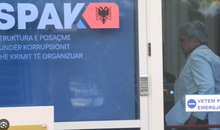
Document/ Benet Beci was taken into custody by SPAK before the elections
2025-06-12 22:52:12








Montenegrin Army to train Ukrainian soldiers
2025-06-12 20:13:45
Italia në alarm, zgjebja po përhapet me shpejtësi
2025-06-12 20:11:39

Dua Lipa gets engaged: I'm happier than ever with Callum Turner
2025-06-12 19:44:29

Around 29,000 Albanians left last year, INSTAT estimates
2025-06-12 19:31:23

Rama "sacrifices" the socialists to make fun of Soros
2025-06-12 19:13:33
Montenegrin Army to participate in EU military assistance mission to Ukraine
2025-06-12 18:57:36



Body acne, six ways to prevent it
2025-06-12 18:05:03

State Matura 2025, foreign language exam grades published
2025-06-12 17:31:26
Video/ This is the moment the Air India plane crashes with 242 people on board
2025-06-12 17:27:59
GJKKO postpones the hearing for 'Golden Bullet' to June 17
2025-06-12 17:23:50
The decline of democracy in Albania, the alarm from the European Parliament
2025-06-12 17:03:38

What does the murder of Superman Veliaj reveal about May 11?
2025-06-12 16:40:53


UN report: Europe is surrounded by a belt of countries in crisis
2025-06-12 16:08:47
Sula: The scandal with the state matura, a failure of the education system
2025-06-12 16:08:42

'I have no affection', Erion Isai separates from his wife
2025-06-12 15:40:38


On the 84th anniversary, the SP is ever bigger, Albania is ever smaller
2025-06-12 15:07:25
A "lazy day" a week can reduce stress and stroke risk
2025-06-12 14:56:30

Tragic in Fier, 28-year-old found dead in the yard of his apartment
2025-06-12 14:39:15
How does temperature affect body composition?
2025-06-12 14:33:18
Throwing company waste into the Buna River, 31-year-old employee prosecuted
2025-06-12 14:30:11
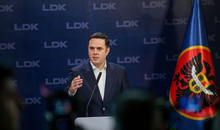
LDK's Abdixhiku unveils 15-point agenda for a unity government
2025-06-12 14:14:24
From shootings to stabbings/The history of deadly school attacks
2025-06-12 14:11:51
3 Albanians, part of criminal organizations, extradited to Italy
2025-06-12 13:59:15
A 26-year-old man is arrested for the armed conflict in Ali Dem
2025-06-12 13:40:31
Report/ Albania worsens in gender equality index
2025-06-12 13:40:14

Quarrel between neighbors in Patos, 35-year-old injured with screwdriver
2025-06-12 13:07:05

Accident on the Krahes-Memaliaj axis, a 65-year-old man is injured
2025-06-12 12:45:49


Demand a recount of votes in Tirana, the Court dismisses Alimehmet's case
2025-06-12 12:22:08
Suffering cardiac arrest, vacationer dies on Qerret beach
2025-06-12 12:05:48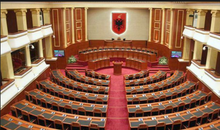

The market is "demanding" a minimum wage increase
2025-06-12 11:52:37

Alarm on the coast/ Elderly woman from Kosovo risks drowning!
2025-06-12 11:25:51
The hearing for "Golden Bullet" is postponed due to the lack of lawyers.
2025-06-12 11:06:27
The Special Court schedules the hearing for the “Partizani” case
2025-06-12 11:00:42
"We work to steal"/ Berisha releases Rama's video: The first time he is honest!
2025-06-12 10:52:11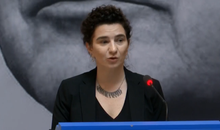


US limits non-essential staff at embassy in Iraq after rising tensions with Iran
2025-06-12 10:19:44

Hero in Greece/ Albanian immigrant saves two children from drowning in river
2025-06-12 09:52:46
Albanian Customs Officials Crack Down on Cigarette Smuggling Business
2025-06-12 09:37:17

26 years of freedom! Kosovo marks Liberation Day today
2025-06-12 09:14:19
Clear skies across the country, weather forecast for today
2025-06-12 09:03:08
The level of salaries in construction and tourism remains below average
2025-06-12 08:49:54


Murder in Xibar i Klos/ Hazbi Velsula, the victim's cousin, in custody
2025-06-12 08:23:45
Morning Post/ In 2 lines: What mattered yesterday in Albania
2025-06-12 08:09:51

Bylykbashi: The EPP Assembly adopted the strongest resolution in this forum
2025-06-11 22:46:15
A person is found dead in Klos, suspected of being murdered
2025-06-11 22:33:38


Rape the cleaning worker in Athens, the Greek police declare the Albanian wanted
2025-06-11 21:30:13
Disappointment with Latvia, Elseid Hysaj reacts after disappointing transfer
2025-06-11 21:15:08

EU: New package of sanctions against Russia focuses on energy and finance
2025-06-11 20:51:17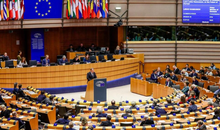

Scandal in Lezhë/ The apartment is covered by sewage
2025-06-11 20:37:59
Rural schools left behind in the use of digital tools
2025-06-11 20:09:51
Kosovo bans import of sheep and goats from Albania
2025-06-11 20:01:17
Shot in the head, former Albanian policeman dies after 3 days
2025-06-11 19:41:08


Weather-shaping factors: How cloud-dwelling microbes affect our lives
2025-06-11 19:01:22


